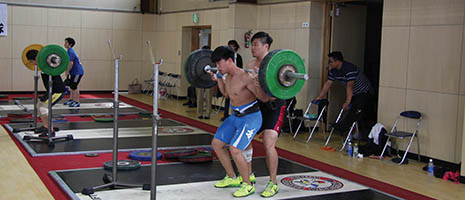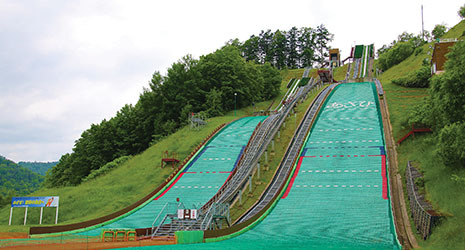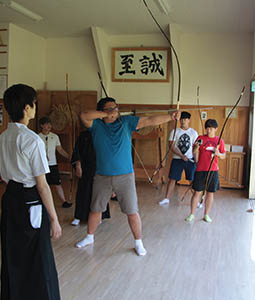Home > Highlighting JAPAN > Highlighting Japan June 2018 > Regional Revitalization through Sports
Highlighting JAPAN


An Olympic-Class Training Haven in Hokkaido With a Distinctive and Appetizing Edge
As of 27 April 2018, 227 cities were registered as “host towns” for the upcoming Tokyo 2020 Olympic and Paralympic Games. One is Shibetsu in Hokkaido, whose outstanding training camp offers great weather, extensive facilities and world-class food.
Although the northern Hokkaido city of Shibetsu only has around twenty thousand inhabitants, the number of athletes who come here throughout the year for training and tournaments exceed the population. Shibetsu offers a cool climate even in summer, and maintains an extensive range of well-equipped facilities near the camp’s lodgings that can be used for free—including an athletics facility approved by the Japanese Association of Athletics Federation, as well as ski jump and low-carbon training facilities. Shibetsu was selected as a host town of Taiwan by the Japanese government to be the training camp for Taiwanese weighlifting team during the Tokyo 2020 Olympic and Paralympic Games.
The city hosted its first training camp back in 1977 for Juntendo University’s track and field team, which has turned out many Olympians. Shibetsu has been welcoming top-class domestic athletes ever since—mainly long-distance runners—and since 1987 has been hosting athletes competing internationally in a variety of events, such as the national weightlifting team and Japan Ski Federation members. With the peak season lasting from July to September, sports teams from around the world now visit Shibetsu for training, including athletes from South Korea and Taiwan.
Shibetsu is a major agricultural area, so of course food is another key aspect of its appeal. The city established a policy of “delicious, safe food as a matter of course,” and received a group certification from GLOBALG.A.P. (GGAP) [see here] in 2009. At lodgings such as the 2020 Tokyo Olympic Village, the agricultural products supplied must meet the certification requirements of international agricultural production process management standards such as ASIAGAP and GGAP. Shibetsu currently has nine GGAP-certified producers producing five products—pumpkins, potatoes, onions, asparagus, and broccoli.
Food has naturally become part of what attracts visitors. For instance, all members of the National Taiwan Normal University weightlifting team, which came to Shibetsu in July 2017, expressed their enthusiasm about the delicious fare. The team also deepened international exchange through joint exercises with local junior athletes, and experienced facets of Japanese culture such as kyudo (Japanese archery) and soba noodle making. Feedback from questionnaires indicated that the team members appreciated all of these activities.
A certified sports nutritionist based in Hokkaido also conducted a sports nutrition course here for the Taiwan junior weightlifting team. The dishes served featured locally grown, low-pesticide ingredients such as GGAP produce, accompanied by written explanations of the ingredients and menu planned in cooperation with local residents. This initiative garnered a lot of interest from the athletes.
As an experiment in providing GGAP ingredients in winter, when the growing season has ended, local businesses are using proprietary methods of flash freezing, which will no doubt lead to new possibilities.
“Regional revitalization tends to focus on the economic side, but that is not the only thing,” says Norichika Hamada, the host town supervisor of the Shibetsu City Board of Education Training Camp Promotion Office. “If Taiwan’s Olympic-class athletes train in Shibetsu City, local residents will likely support the Taiwanese team, and enjoy the 2020 Tokyo Games twice as much.”
In fact, Hamada hopes to create an environment in which every citizen feels a more intimate connection to the 2020 Tokyo Games while joining forces as a region.
From some events including an Olympic Day run sponsored by the Japanese Olympic Committee to interacting with Taiwanese athletes, it is clear that a blossoming sense of Olympism and local revitalization are growing within Shibetsu’s citizens.
© 2009 Cabinet Office, Government of Japan







